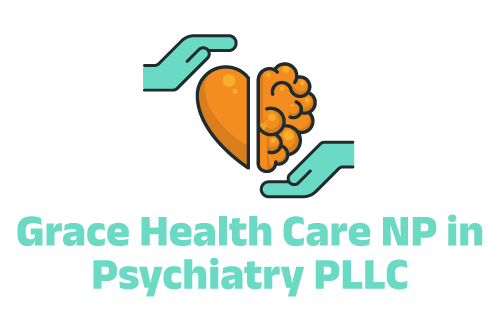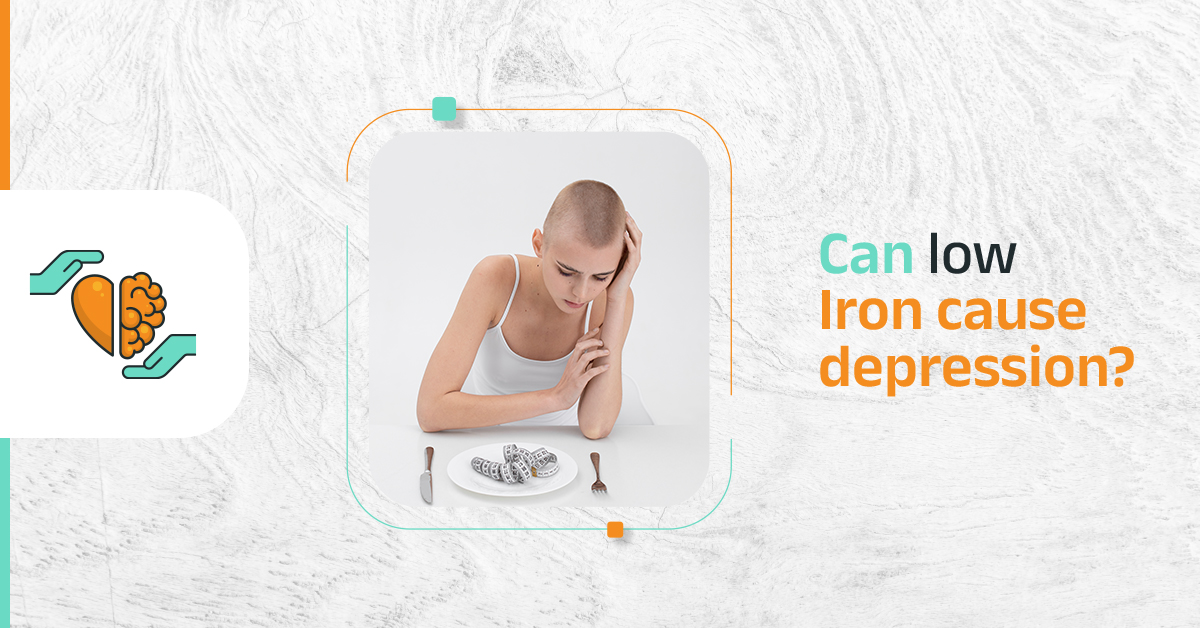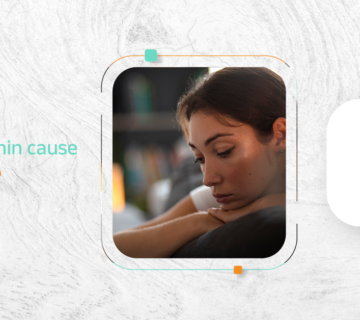Iron is vital for making hemoglobin, a protein in red blood cells that carries oxygen around the body. But iron is vital for mental health, too.
It helps our physical health. More research shows a link between low iron and mental health issues such as depression. But how exactly do iron deficiency and mental health impact?
Can low iron cause depression? We will examine the connection between iron deficiency and depression and explore its causes and solutions.
Heal from depression with Grace Health Care. Understanding Iron’s Role in Brain Function
Iron is vital for the brain and mental health. It supports many biological processes. Here are a few ways iron supports the brain:
- Neurotransmitter Synthesis: Iron makes dopamine, serotonin, and norepinephrine neurotransmitters. These chemicals are key to mood, and imbalances can lead to depression.
- Energy Production: Iron is vital for energy in cells, especially the brain, which consumes a lot of energy. Disruptions here can affect mood, thinking, and clarity.
- Myelin Formation: Iron helps make myelin, a fatty layer that shields nerve fibers and ensures smooth communication between nerve cells. Healthy myelination is vital for brain health and function.
- Oxygen Transport: Iron, through hemoglobin, ensures the brain receives adequate oxygen. Oxygen is crucial for brain activity. Without it, cognitive function and mood can suffer.
Does Low Iron Make You Depressed?
Research shows a link between iron deficiency and mental health. But the relationship is complex. Low iron levels can harm brain function and mental health in several ways.
- Low Iron Affects Brain Chemicals: Iron is crucial for serotonin and dopamine. They regulate mood. Without enough iron, these chemicals drop, possibly leading to depression. Symptoms include a low mood, lack of motivation, and inability to feel pleasure.
Let’s look at the effects of low hemoglobin on the brain
- Cognitive Impairment: Iron deficiency can cause cognitive problems. These include poor focus, memory issues, and mental fatigue. These symptoms are also common in depression. Moreover, impaired thinking can make depression worse.
- Fatigue and Lethargy: Iron deficiency often causes fatigue. This tiredness can cause less activity, social withdrawal, and hopelessness. Such effects can worsen depression.
- Lower Oxygen Supply to the Brain: Low iron levels cut oxygen to the brain. This blurred thinking causes irritability and triggers mood swings, worsening depression. Iron deficiency also weakens immunity, making illness more likely. Poor health can lead to depression, especially with low energy or frequent sickness.
How Does Iron Deficiency Develop?
Iron deficiency occurs when the body lacks enough iron for hemoglobin.
Several factors contribute to this condition:
- Low Iron Diet: Iron deficiency is common in diets lacking red meat, spinach, and legumes. Plant-based eaters are at higher risk. This is because their bodies absorb less iron from vegetables than from animal sources. Thus, vegetarians and vegans need to be careful to get enough of this vital mineral.
- Poor Absorption: Conditions like celiac disease and stomach ulcers can block iron absorption. These issues hinder the body’s uptake of this essential mineral. Similarly, some people find a high-iron diet insufficient. Despite their efforts, they remain deficient.
- Blood Loss: Iron depletion is often due to ongoing blood loss. Common causes include heavy menstruation and ulcers. Additionally, certain medications and injuries can contribute. Over time, these factors may lead to chronic iron deficiency.
- Pregnancy: Pregnant women with low iron are at risk for depression. As the baby grows, mothers need more iron for blood. Low iron can lead to mood issues and health problems.
- Chronic Illness: Kidney disease or cancer can hinder iron absorption. This can cause iron deficiency anemia.
Symptoms of Iron Deficiency and Depression
- Fatigue and lack of energy
- Weakness or dizziness
- Pale skin
- Shortness of breath
- Cold hands and feet
- Rapid or irregular heartbeat
- Restless legs syndrome
- Hair loss or brittle nails
- Headaches
- Irritability and mood swings
- Poor concentration or memory
10 Facts About Depression
- Depression affects many. Depression affects over 280 million people worldwide. It is a common mental health issue.
- It’s more than feeling low. Beyond affecting emotions, depression can cause physical discomfort. Fatigue, headaches, stomach issues, and long-term pain are examples. So, it’s quite complicated.
- Various elements cause depression. It can arise from genetic, biological, environmental, and psychological perspectives. Stress, trauma, medical conditions, or family history heighten the risk.
- More women experience depression. They are twice as prone as men. Hormonal fluctuations related to pregnancy, periods, and menopause could contribute.
- Depression and anxiety are often buddies. They’re usually found together, complicating symptoms and treatment.
- No one is safe from depression. Anyone can suffer, regardless of age, race, gender, or income. Adolescence and old age might increase susceptibility.
- Sadness isn’t the only sign of depression. It’s more than mere sadness. Some feel numb, annoyed, or indifferent. Others lose interest in their favorite activities without feeling blue.
- It magnifies physical health risks. Depression can increase the risk of heart disease, diabetes, and a weak immune system. The stress it causes affects both body and mind.
- Treatment can work. Therapy, meds, lifestyle changes, and support can help many beats depression and find happiness. Timely help aids in better recreation.
- The stigma prevails. Despite raised awareness, depression stigma persists. This deters people from seeking help, fearing judgment. Advocacy can fight these skewed perceptions.
How to Address Iron Deficiency and Depression
Dealing with Iron Shortage and Sadness Your body’s iron could be low. A simple blood test diagnosis. It’s smarter to ask a healthcare professional about your iron and mood. To fix iron deficiency depression:
- Eat Iron-Rich Foods: Add beef, chicken, fish (oysters, sardines), green veggies (spinach), beans (lentils, chickpeas), nuts (pumpkin seeds), and some cereals.
- Take More Iron: If your iron is super low, your doctor may suggest pills. Be sure to take the right amount with Dr. Prescribe.
- Eat Iron Better: Eating food with lots of vitamin C helps your body use iron. Try fruits like oranges or vegetables like peppers. Don’t drink tea or coffee with high-iron meals—it messes things up.
- Fix the Real Problem: Deal with what’s causing your low iron, like stomach issues or ongoing bleeding. Doing this will bring your iron back to normal.
- Mental Health Support: Boosting your iron might lift your mood. However, sadness is complex. Always consult your doctor and seek help if you’re feeling down. This could involve therapy or medication.
Wrapping Up
Can low iron cause depression?
Low iron in your blood may trigger depression. Iron affects brain function and energy. When it’s low, mood and thinking suffer. Fatigue and low spirits can signal low iron, not just stress. Get a blood test to diagnose and start recovery.
Fixing iron deficiency and depression can boost physical and mental health. It can lead to better days and more energy.
FAQs
-
Can low iron cause depression?
Yes, iron deficiency can cause depression. It affects oxygen delivery to the brain and neurotransmitter production.
-
Can iron deficiency cause anxiety?
Yes, low iron can cause anxiety. The body struggles to meet its oxygen needs. This can lead to restlessness and panic.
-
Can low iron cause intrusive thoughts?
Severe iron deficiency is rare. It can cause cognitive issues, like intrusive thoughts, due to brain fatigue.







No comment